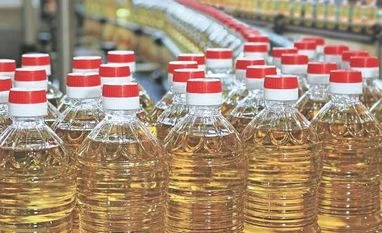Amid demands for reducing import duty on rice bran oil and olive pomace oil, the government has asked edible oil associations to explain how the move will help boost domestic availability.
According to official sources, Food Secretary Sudhanshu Pandey has written to the Solvent Extractors Association of India (SEA), Indian Vegetable Oil Producers Association (IVPA) and Soybean Processors Association of India (SOPA) in this regard.
"...industry may give a written representation on how the reduction in the duty structure of rice bran oil and olive pomace oil will help to increase the availability of edible oils in the country," the letter said.
The letter comes following a meeting on July 6 on the availability of edible oils and price situation in the country. In that meeting, the government had directed the industry associations to reduce the maximum retail price (MRP) by up to Rs 15/litre and pass on the fall in international prices to consumers.
Apart from promising to reduce the MRP of imported edible oils, the industry associations had in that meeting urged the government to reduce the import duty on rice bran oil and olive pomace oil, in line with crude soybean oil and crude sunflower oil, in order to increase the domestic supply.
"There is demand for rice bran oil and olive pomace oil in the country. Reduction in duty will help import of at least 15,000 to 20,000 tonne of these two cooking oils," SEA Executive Director B V Mehta told PTI.
More From This Section
On May 24, the government had allowed duty-free import of 20 lakh tonnes of crude soybean oil and crude sunflower oil each under the tariff rate quota (TRQ) system for 2022-23 and 2023-24 with an aim to increase supply and moderate domestic prices.
TRQ is a quota for a volume of imports that will enter India at specified or nil duty. After the quota is filled, the normal tariff applies to additional imports.
The associations have also been asked to direct edible oil makers which have not reduced MRP to reduce the same, sources said. They have also been asked to involve themselves in the methodology of price collection of edible oils for the benefit of both the industry and government.
India meets 60 per cent of its edible oil requirement through imports.
)